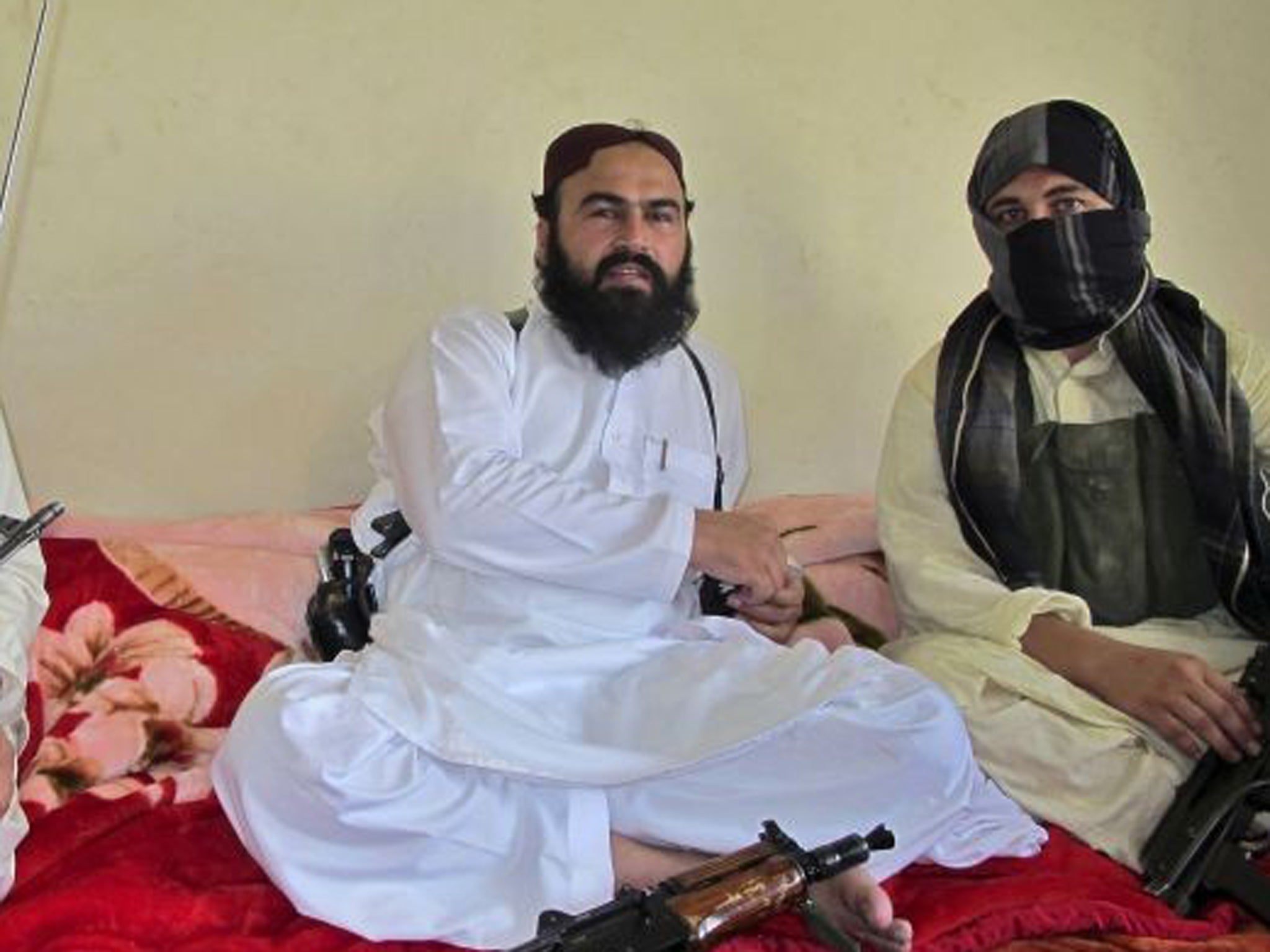Your support helps us to tell the story
From reproductive rights to climate change to Big Tech, The Independent is on the ground when the story is developing. Whether it's investigating the financials of Elon Musk's pro-Trump PAC or producing our latest documentary, 'The A Word', which shines a light on the American women fighting for reproductive rights, we know how important it is to parse out the facts from the messaging.
At such a critical moment in US history, we need reporters on the ground. Your donation allows us to keep sending journalists to speak to both sides of the story.
The Independent is trusted by Americans across the entire political spectrum. And unlike many other quality news outlets, we choose not to lock Americans out of our reporting and analysis with paywalls. We believe quality journalism should be available to everyone, paid for by those who can afford it.
Your support makes all the difference.The Pakistani Taliban's deputy leader was buried hours after he was killed in a US drone strike, Pakistani intelligence officials and militants said on Thursday.
The death of Waliur Rehman has not been confirmed by the White House or the official Pakistani Taliban spokesman, but if true, it would be a major blow to the militant group whose bombings and other attacks have killed thousands.
Rehman's killing in a US drone strike on Wednesday could also rattle the incoming Pakistani ruling party's goal of negotiating with the Taliban. Rehman had previously been considered more amenable to peace talks than his superior, Hakeemullah Mehsud, who remains at large.
Rehman and four other people were killed on Wednesday morning by the drone-fired missiles that slammed into a house on the outskirts of Miran Shah, the main town in the North Waziristan tribal region, according to Pakistani intelligence officials.
Two intelligence officials told The Associated Press on Thursday that informants on the ground told them Rehman was buried on Wednesday night. Also, two militants told the AP they attended the funeral. All four spoke on condition of anonymity because they were not authorized to speak to the media.
Journalists have little access to North Waziristan or other tribal regions bordering Afghanistan, making independent confirmation of the claims difficult.
The missile attack was the first since Pakistan's May 11 elections, which ushered in a new ruling party that has promised to push the U.S. to end such strikes. It also followed President Barack Obama's speech last Thursday during which he pledged more restrictive rules on the use of drones.
White House spokesman Jay Carney declined to confirm Wednesday if Rehman was dead. He said if it's true, Rehman's death would deprive the militant group of its chief military strategist, a man the U.S. says was involved in an attack that killed seven CIA employees in Afghanistan.
In 2010, Washington offered $5 million for information leading to Rehman.
The US drone program is deeply unpopular in Pakistan, even though the number of strikes has dropped significantly since 2010. The strikes usually target al-Qaida-linked insurgents or other militants who fight in Afghanistan, but some have killed militants at war with Pakistan's government.
The Pakistani Taliban has been battling government forces for years in a bid to push them from the tribal regions, cut Pakistan's ties with the U.S. and eventually establish their brand of hardline Islam across Pakistan.
Pakistan's incoming prime minister, Nawaz Sharif, has said he is against the use of American drones on Pakistani soil, and that he is open to negotiating with the Pakistani Taliban. But Rehman's death could complicate that by depriving the process of a potential key player.
Rehman was believed to be about 42 or 43 years old and was from South Waziristan, said Mansur Mahsud, director of administration and research at the Islamabad-based FATA Research Center. He had already been fighting American troops in Afghanistan when the Pakistani Taliban was created in late 2007 and he turned his focus more onto Pakistani targets.
"He was a very cool-minded person, a very intelligent person and he was someone that the government could talk to," Mahsud said.
The Pakistani Ministry of Foreign Affairs condemned the drone strike Wednesday but did not mention Rehman. Senior Pakistani civilian and military officials are known to have supported some of the drone strikes in the past, but many say that is no longer the case.
AP

Join our commenting forum
Join thought-provoking conversations, follow other Independent readers and see their replies
Comments